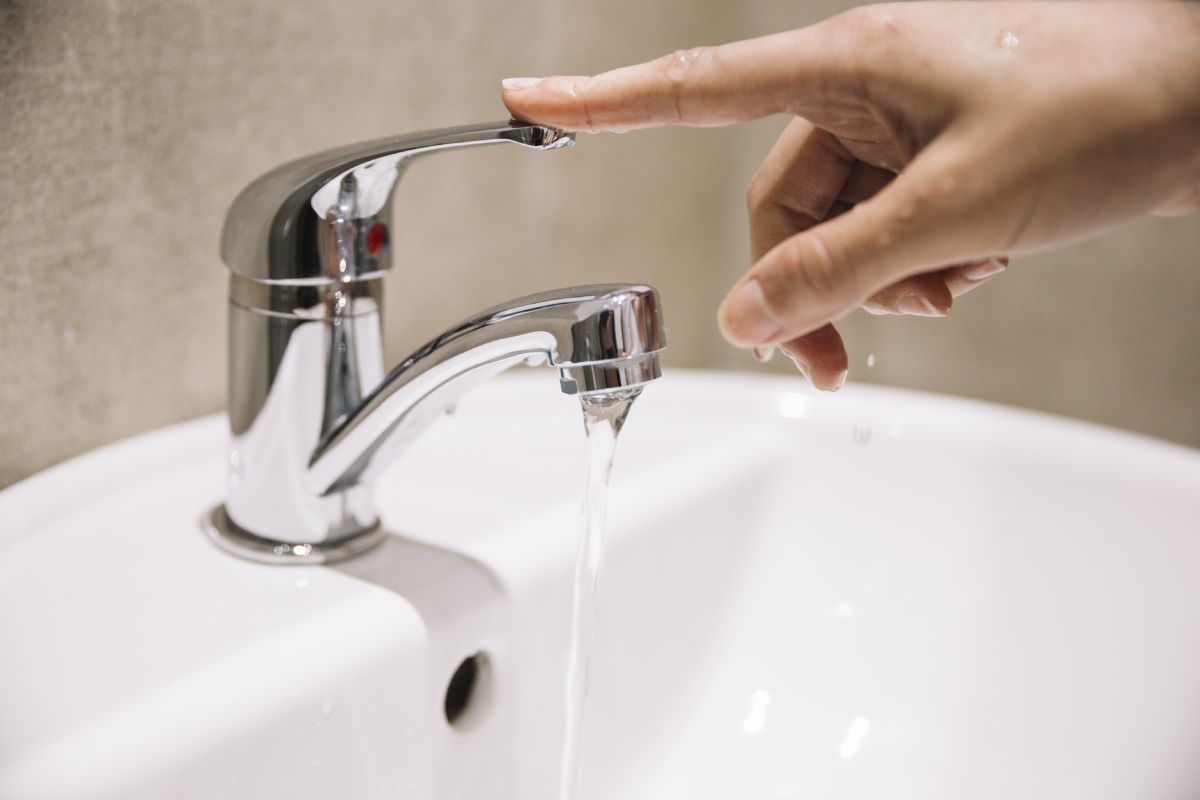Efficient Techniques for Addressing Low Water Pressure in Your Home
Efficient Techniques for Addressing Low Water Pressure in Your Home
Blog Article
The article underneath involving 9 Reasons for Low Water Pressure in Your House is definitely compelling. You should look it over.

Low water stress in your home can be a frustrating issue, impacting every little thing from showering to cleaning meals. If you're experiencing weak water circulation, there are several feasible causes and services to explore. In this guide, we'll talk about typical factors for low water stress and sensible steps to resolve the issue properly.
Intro to Low Water Stress
Low water stress occurs when the flow of water from your faucets, showers, and other components is weak than typical. This can make daily jobs more challenging and less efficient. Comprehending the causes of low tide pressure is crucial to finding the appropriate solution.
Usual Reasons For Low Tide Pressure
Faulty Pressure Regulators
Pressure regulators are responsible for preserving consistent water pressure in your house. If they malfunction, it can cause low tide stress or uneven circulation throughout your home.
Local Water Supply Issues
Sometimes, the issue lies outside your home. Local water supply concerns, such as main line leakages or upkeep work, can briefly reduce water stress in your location.
Pipe Obstructions
In time, pipes can end up being obstructed with natural resource, debris, or debris, restricting the circulation of water. This is a typical concern in older homes with galvanized steel pipelines.
Rust
Corrosion within pipelines can lead to leakages and decreased water stress. Rust buildup can constrict water flow, specifically in aging plumbing systems.
How to Identify Low Water Pressure
Evaluating Pipes
Inspect noticeable pipelines for signs of leaks, corrosion, or clogs. Focus on any type of uncommon audios, such as knocking or rattling pipelines, which could suggest issues within the plumbing system.
Consulting with a Plumber
If you're incapable to pinpoint the cause of low water pressure, think about employing a specialist plumber to conduct a comprehensive examination. They can determine underlying issues and advise appropriate solutions.
Checking Taps and Fixtures
Beginning by examining the water pressure at various faucets and components throughout your home. If the problem is separated to certain locations, it may suggest local issues.
DIY Solutions to Take Care Of Low Tide Stress
Flushing Hot Water Heater
Sediment build-up in the hot water heater can limit flow and decrease efficiency. Purging the container occasionally assists remove sediment and maintain optimum efficiency.
Checking Stress Regulator
Make sure that the pressure regulatory authority is working properly. Changing or replacing the regulatory authority can aid bring back appropriate water pressure throughout your home.
Cleaning Aerators and Showerheads
Mineral deposits can gather in aerators and showerheads, reducing water circulation. Eliminate and cleanse these components consistently to boost water stress.
Clearing Clogs in Pipeline
For minor blockages, try using a plumbing serpent or chemical drainpipe cleaner to clear blockages in pipes. Beware when making use of chemicals and follow security standards.
When to Call a Specialist Plumber
If do it yourself initiatives fall short to fix the issue or if you presume substantial plumbing issues, it's ideal to seek assistance from an accredited plumber. They have the experience and devices to attend to complicated issues securely and successfully.
Preventive Measures to Keep Water Stress
Mounting a Pressure Booster
Consider installing a stress booster pump to improve water stress in areas with continually low circulation. This can be particularly beneficial for multi-story homes or residential or commercial properties with high-demand components.
Tracking Water Use
Bear in mind water usage habits and stay clear of ill-using the plumbing system. Easy changes, such as incredible showers and laundry tons, can help maintain sufficient water pressure.
Normal Maintenance
Arrange regular upkeep for your plumbing system to avoid problems such as deterioration, leakages, and clogs. Dealing with small problems early can aid prevent even more significant repair work later.
Final thought
Handling low tide pressure can be frustrating, however determining the underlying reasons and implementing suitable options can restore optimum circulation throughout your home. Whether it's cleaning aerators, inspecting pipes, or seeking advice from a plumber, taking aggressive steps can guarantee a constant supply of water for your day-to-day demands.
FOUR WAYS TO FIX LOW WATER PRESSURE NOW
Turning on a shower or faucet only to find the water comes out in a sad, slow drizzle is never a good feeling. How exactly are you supposed to wash a pan or take a quick shower when it takes 10 minutes just to rinse off a little soap? The good news is that when your water pressure is bad, there's always a cause: typically one that can be easily fixed. Here are some of the most common causes of low pressure and what you can do to fix the issue:
DEBRIS AND MINERAL DEPOSIT BUILDUPS
If you notice low water pressure from just one or two of the fixtures in your house, the problem likely has to do with debris buildup. Water is full of minerals and other debris, all of which can accumulate in your pipes and on your fixtures. This can cause a blockage that affects how much water flows through. To fix this, try filling a small plastic bag with white vinegar, and use a rubber band to hang it around your showerhead or faucet. Let the head of the fixture soak for a few hours, and the vinegar should loosen the deposits.
WATER LEAKS
Leaks are another common cause of low water pressure. If water is flowing out of your plumbing through a hole or crack before it can reach your fixture, the pressure coming out of the faucet or showerhead will be lower. A plumbing professional is your best bet for finding and repairing a leak in your water supply pipes.
Leaks are another common cause of low water pressure. If water is flowing out of your plumbing through a hole or crack before it can reach your fixture, the pressure coming out of the faucet or showerhead will be lower. A plumbing professional is your best bet for finding and repairing a leak in your water supply pipes.
A VALVE ISSUE
If you have low water pressure throughout your home, check your main shut-off valve to make sure it's completely open. You may also want to see if there's a pressure-reducing valve installed. If there is, have a plumber help you adjust the settings to get the pressure you're looking for.
OTHERS USING WATER
Believe it or not, your low water pressure could be caused by your neighbors. If you notice low pressure at certain times of day, it may be because you and the people living next to you have similar schedules - when everyone is showering at the same time, the pressure will be lower in every home. Low pressure throughout the neighborhood may also be caused by an issue with your municipal water supply. If that's the case, call the supplier to see if they're working on the issue.
https://www.rotorooter.com/blog/water-leaking/low-water-pressure-fixes/

We hope you enjoyed our piece on 9 Reasons for Low Water Pressure in Your House. Thanks a ton for taking the time to browse our posting. Are you aware of another person who is very much interested in the niche? Be sure promote it. Thanks a bunch for your time. Kindly check up our blog back soon.
Call Report this page